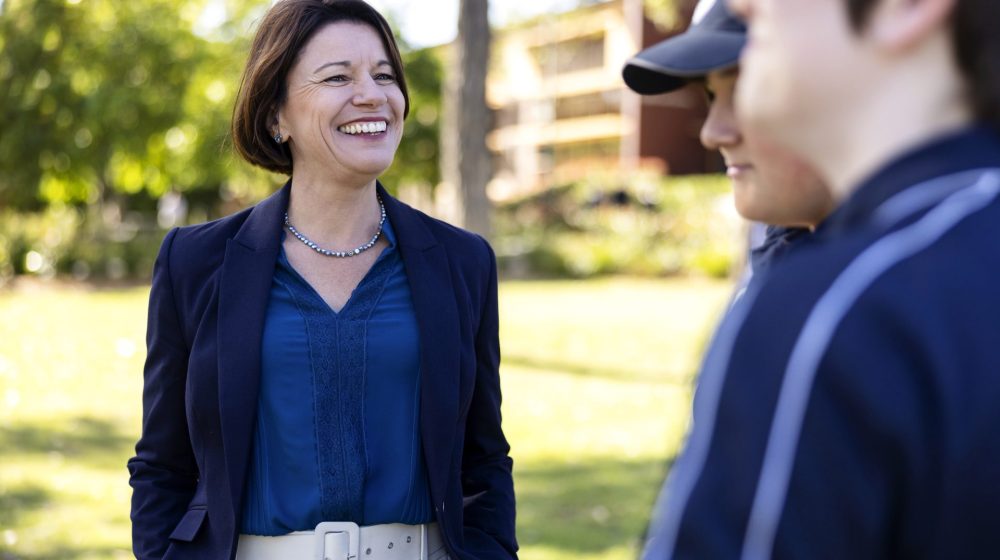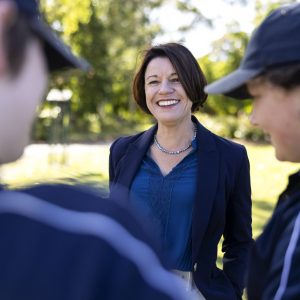Published on April 5, 2024
This week I have been energised by two parent workshops focused on re-developing a Parents Association at HVGS. I end the week feeling energised by the spirit of collaboration, service, camaraderie, and connection inherent in these sessions with parents.
Most of all, I was energised by the possibility of partnership. Sherry Turkle in her brilliant book Reclaiming Conversation laments the impact of rapid technological change on our capacity (particularly the capacity of our young people) to engage in deep conversation based on mutual respect, active learning and the desire to really understand another’s perspective. Revisiting her work at a time where most of our information and news is coming through social media sound bites is particularly important and crucial. Likewise, revisiting her work at a time when our children are immersed in the world of Tik Tok, Snapchat, You Tube, Instagram and the many other social media apps out there, is essential. Quick posts that disappear within minutes negate the art of conversation: they encourage quick fire thinking (not slow, thoughtful reflection) and an individualistic approach rather than a collectivism that focuses on socially responsible and compassionate communication.
Returning to the parent workshops this week, the possibility of partnership and the notion of reclaiming conversations with our parent body gave me joy. Deep, thoughtful conversations break down binary thinking, enable us to work together on a middle ground, and dismantle “camps” or cliques.
One of my long-term goals as a leader is to challenge my own, and others, tendency towards “all or nothing thinking”? I am genuinely curious about the space between – the middle ground between opposing perspectives or experiences because it is within that between space that we can find a way out of conflict and a way towards connection and shared purpose.
In many respects, the key to finding the middle ground is reclaiming conversation and practicing the art of listening.
I firmly believe that leaders in learning organisations need to take the time to listen to multiple voices: the voices of students, teachers, parents and the communities to which the school belongs (both local and global). This enables us, in our decision-making processes, to step out of either/or thinking and see the possibilities that come from being comfortable with hearing different perspectives or, in other words, comfortable with the between space or middle ground.
We know that when we listen to our students, for instance, they tell us that they need and want: structure, safety (emotional and physical) as well as challenge, and a strong sense of purpose. These are their basic needs as learners and once they are met, we have a solid platform from which to challenge them even further as learners. By listening to students, we can break away from either/or thinking and see how we can move fluidly between different ways of learning that responds to their current and future realities.
Likewise for our parents and caregivers. Their voices are also crucial in navigating the complex decisions we encounter each day.
To reclaim the art of conversation, we need to all work on:
- Building our capacity to be collaborative and engage in healthy, cognitive conflict.
- Valuing dialogue and action equally, which involves recognising when to move forward and when to be patient and take the time to listen.
- Building strategic and systems thinking so that we are less reactionary. This builds resilience, understanding and empathy by slowing thinking down and focusing on the big picture or shared purpose not just individual need.
- Communicating a shared vision.
- Staying true to school values while listening for, and staying open to, possibilities that fit within that vision or suggest a need for change.
- Building professional capital (see Hargreaves and Fullan) by leveraging the talents of the individuals within our community to help consolidate practices and bring about necessary change.
- Modelling patience with oneself and acknowledging one’s own strengths and limitations.
Education is an incredibly dynamic field. As leaders in schools today we need to have patient but keep moving. We need to be able to move between different perspectives and facilitate the finding of a middle ground where “camps” are dismantled but difference is celebrated and embraced. The changing landscape of learning – and often competing priorities and government mandates – make it essential to balance listening and learning with action. This movement between different ways of seeing problems is crucial so we don’t get paralysed and stuck in the status quo and settle for something less than who we can be as a school.
Coming back to the energy with which I started this blog post, I am also ending the week feeling hopeful because I see us moving forward together as a community. Not operating in silos or camps, but seeing students, staff and parents as equal members who deserve to be heard but also have a responsibility to listen so we can embrace that middle way together. I believe strongly in our human capacity to allow competing priorities to sit side-by-side and inform each other so we can achieve a dynamic equilibrium. To do this, we need to reclaim conversation and practice the art of listening!

Works cited:
Turkle, Sherry. Reclaiming Conversation: The Power of Talk in the Digital Age. Penguin: New York, 2015.
Hargreaves, Andy and Fullan, Michael. Professional Capital: Transforming Teaching in Every School. Teacher’s College Press: New York, 2012

